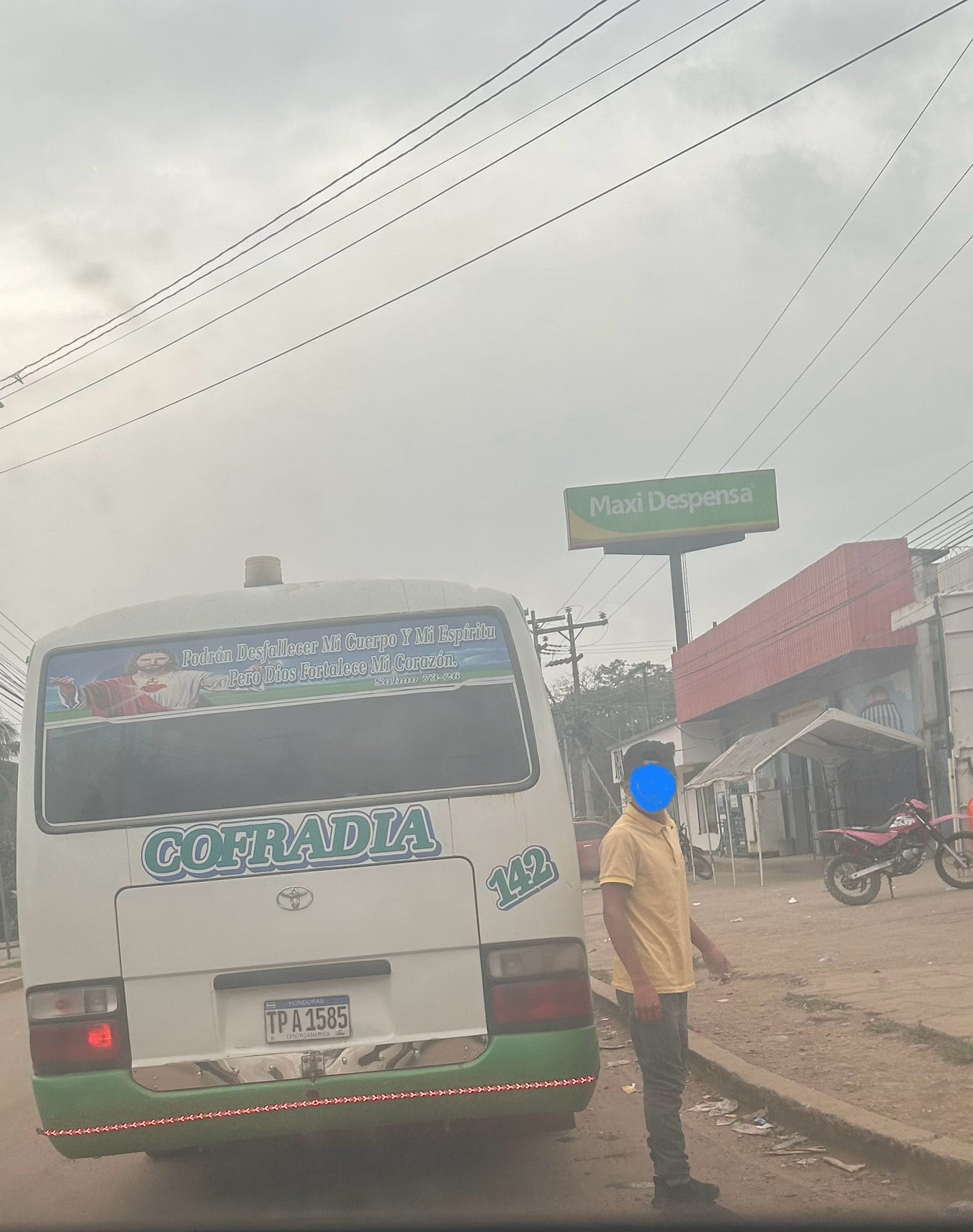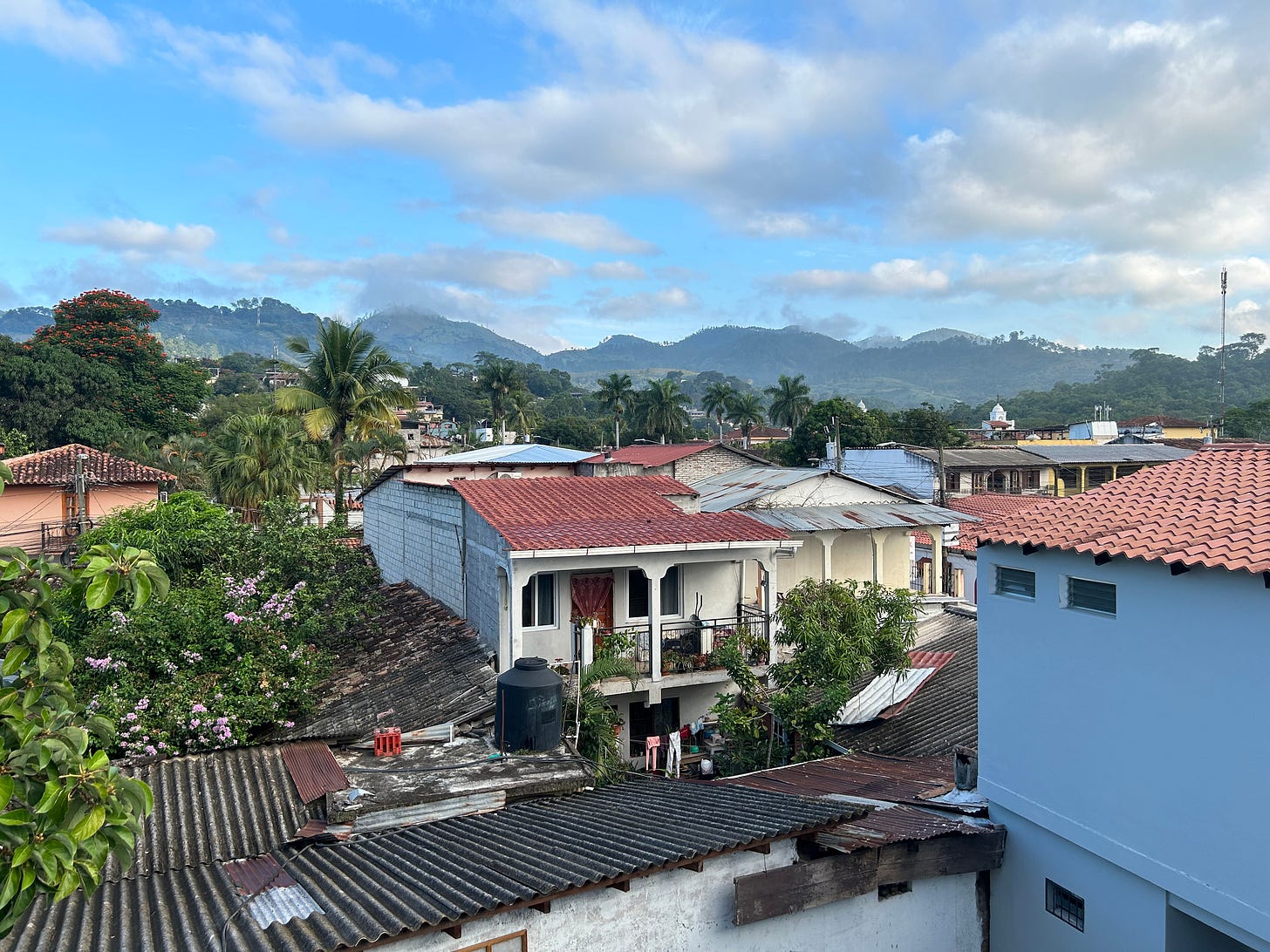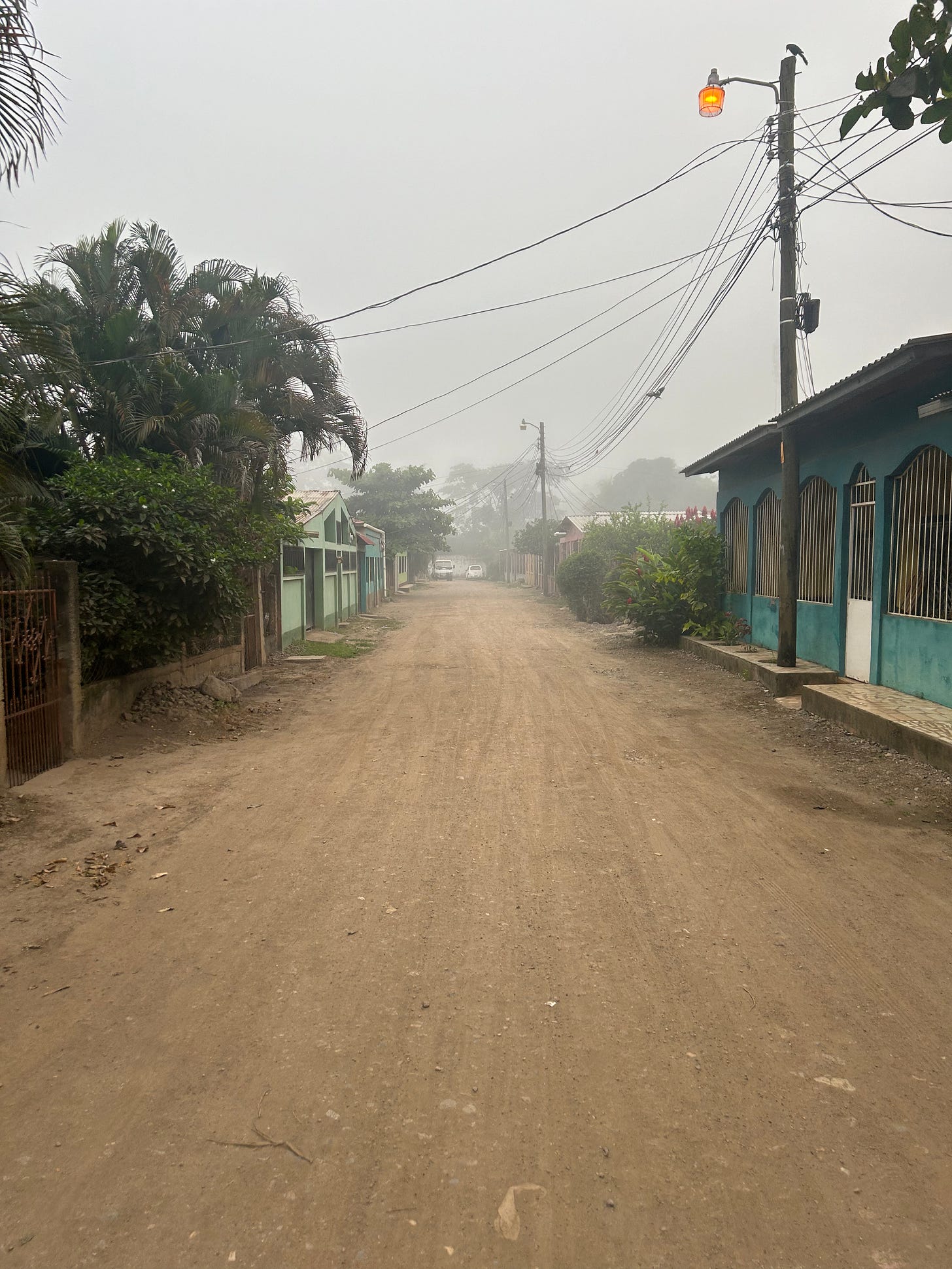Silicon Valley Investors Are Not Honduras' Biggest Problem
Socialism and narco-governance threaten the nation's future
A recent Foreign Policy article is making the rounds for its negative portrayal of Próspera, the charter city on the Honduran island of Roatán. For a bit of background, Próspera functions as an “employment and economic development zone,” or ZEDE, creating a semiautonomous jurisdiction that can write some of its own laws. The project enjoys support from prominent Silicon Valley investors like Marc Andreessen and Peter Thiel. Similar schemes around the globe include Shenzen, China’s own Silicon Valley, and Dubai, the sybaritic hub of the UAE.
The authors claim Próspera enjoys an “astonishing” level of autonomy and faces little oversight from the Honduran government, though these claims seem overstated. As the project’s lawyer writers:
It is subject to the Honduran Constitution, national treaties, criminal laws, and other aspects of sovereign Honduran law. Próspera can create and has created local rules in areas like commercial and civil law, industrial, financial, and occupational regulation, labor law (compliant with the conventions of the International Labour Organization ratified by Honduras), and environmental regulation, but these rules must be approved by the national oversight body, CAMP (Committee for the Adoption of Best Practices)
For some, granting even this level of autonomy is unconscionable—for anyone who knows how Honduras has functioned for the past several decades, it may seem like a healthy experiment.
I happened to teach in Honduras for a few months last year and generally enjoyed my experience. Honduras is the least neurotic place I’ve ever lived, and maybe the Mormons are right for sending their youth to developing countries. (There were in fact Mormons, and they came to our house.)

But Honduras is a poor nation to be sure. The town I lived in lacked paved roads for the most part, electricity outages were common (for reasons that will become clear imminently), and trash services were so irregular that many people burned their refuse. A trip inland took twice as long as Google Maps indicated because the only available road consists of two lanes riddled with potholes and must be shared with semi trucks.
I want to see Honduras become wealthier. As economists like Paul Romer have pointed out, an obvious way for a nation long bedeviled by corrupt institutions to get wealthier is to import better ones. That is what Próspera aims to do. Whether it could succeed—current opposition notwithstanding—is another matter, but if nothing else, it offers Hondurans a choice between two governance models and labor markets. Próspera has indeed made a point about being inclusive to natives. Residency for locals costs just $260 per year, compared to $1,300 for outsiders. Under Próspera’s labor laws, employees are required to be paid at least 25% more than the Honduran national minimum wage for each industry.1 Workers even retain the right to unionize in this anarcho-capitalist tech dystopia.
But as the article points out, current Honduran President Xiomara Castro is unraveling those efforts. In 2022, Congress repealed the ZEDE laws set up under previous President Juan Orlando Hernández, a fulfillment of Castro’s campaign promises to undo “neoliberal injustice.” Congress, however, has failed to ratify the anti-ZEDE reform, and the original ZEDE law assured 50 years of legal stability, leaving Próspera in legal limbo. Próspera is now suing the Honduran government for $11 billion, a case it is projected to win, but its viability as a charter city looks dubious.
The authors are keen to point out that the men who helped establish the ZEDE laws were very corrupt, coming to power in the wake of a 2009 coup. With the help of future President Hernández, President Porfirio Lobo oversaw a purge of Honduras’ courts to push through the ZEDE laws. Castro, the article suggests, is just trying to undo this antidemocratic legacy and recover losses incurred under a period of aberration in Honduras’ otherwise very democratic history. They fail to mention that Castro’s husband was the man that was removed in the coup, and that he was trying to rewrite the constitution to overstay his term limits.
More importantly, Honduras is not just locked in a dispute with Silicon Valley billionaires, as the authors would lead you to believe. Other claimants against Honduras at the International Center for the Settlement of Investment Disputes (ICSID) include the Paiz family, one of the wealthiest in Guatemala, the U.S. bank JPMorgan Chase, and others from Honduras, Panama, Mexico, Chile, Norway, and the Caymans. More claims were brought by private energy companies after Castro’s 2022 reforms pushed out private investment to expand the state’s role in electricity production. Predictably, there are no signs of progress for Honduras’ crippled energy grid. The state-run National Electric Energy Company loses over $30 million every month, with debts amounting to more than 10 percent of Honduran GDP.
This is to say that Honduras’ current feud with Próspera is part of a pattern of reneging on obligations to investors and expanding state influence, not a one-time rectification of a coup by Silicon Valley billionaires.
Equally absent the article is any mention that the supposedly “center-left” Castro is a self-proclaimed socialist strongly aligned with Venezuela and, in shirking foreign investors and the US, following in its footsteps quite neatly. Castro’s recent removal of Honduras from the ICSID over the long list of outstanding claims against it is a move familiar to Venezuela, which left in 2012. The Honduran government’s rationale—that the ICSID favors corporations instead of states—is the same that Venezuela used. The practical effects of this move are limited, but the symbolic ones are meaningful. Honduras is branding itself as a bad place to do business.
After cutting diplomatic relations with Taiwan last year, Honduras does have a new ally in China, from which it secured a $275 million USD investment in public school infrastructure in March. But Chinese investment is not a free lunch, as the massive debts incurred across the global south show. What more, unlike Próspera, such investment is only likely to entrench corrupt governance by rewarding bad behavior. Among the first to congratulate Maduro on his election fraud was, of course, China—what message does that send to Castro? More generally, where is the authors’ concern about the threats to Honduran democracy from the world’s largest authoritarian regime?
Castro has more recently ended Honduras’ decades-old extradition agreement with the US, claiming that a plot is being hatched against her government over criticism of her hostility to business from the US embassy. Not surprisingly, there is quite compelling evidence that Castro, like her predecessor, has ties to drug traffickers: Her brother-in-law is shown on video entertaining $650,000 in bribes from a cartel for her presidential campaign. To be clear, narco-governance in Honduras is an entrenched bipartisan phenomenon, not the exclusive domain of the prior Próspera-friendly president.
So contrary to the author’s claims that US government support for Próspera’s legal action is what is hindering a stable and democratic Honduras, socialist narco-governance appears to be the much bigger impediment, both to stable democracy and economic prosperity. The best solution to the current lawsuit would be for the Honduran government to reinstate Próspera’s legal autonomy, not for the US government to oppose its own investors. Sadly, whether or not the US changes its posture toward the Próspera lawsuit, Honduras’ drift toward Venezuelization under Castro looks inevitable in light of the full scope of investor disputes. Indulging the Honduran government would only have the effect of sending a bad message to potential charter city investors in the US.
But let’s cast aside ideology and think functionally. Say you are a socialist—better yet, “center-left”—and you actually want to see Honduran people follow the path of wealthier Latin American nations. The question in 2024 is: At what point do you admit on humanitarian grounds that it is better to align with the US and foreign investors instead of joining an socialist axis of nations facing population hemorrhage and food shortages?
The simple fact is that people living in the nations that aligned with the US and courted foreign investment over the past 50 years, such as Panama, Chile, and the Dominican Republic, lead far better lives today than those who live in nations that spurned global capitalism, such as Cuba and Venezuela. The once-fashionable arguments about Cuba’s supposedly great healthcare system have fallen flat now that the nation has lost over ten percent of its population in the past two years. You can squawk, like a Chomskyite, that the consummate failure of Latin American socialism is all because the US didn’t give Allende enough time to implement his supercomputer price-fixing program, but how many lives must be impoverished to serve mulish ideology before we’ve seen enough? You do not have to be Peter Singer to feel a utilitarian impulse here.
It’s easy to forget that socialist fervor already seized Central America a generation ago. The 1980s were a time when Oliver Stone made tributes to El Salvador’s communist FMLN and Salmon Rushdie hung out with the Sandinistas. But the show is over: along with Honduras, Nicaragua today is the poorest Central American country today, where the Sandinista-turned-dictator Daniel Ortega recently evicted all NGOs from the country. The carcass of the FMLN in El Salvador became a launchpad for the right-wing Nayib Bukele’s current strongman leadership. What is the case that Honduras aligning with the few remaining impoverished dictatorships decades after they’ve been run into the ground will make the average Honduran person better off?
The language of Próspera opponents is often couched in democracy and anti-colonialism—we are to believe that the presence of Próspera is a major trampling of Honduran people’s rights because someone who lived next to it protested, just as people around the world do over a wide range of developments in their proximity. But we should not treat opposition to legal investments and developments as special because it comes from people in a developing country. Those who do see Hondurans not as equals, but people who cannot cope with a rule of law.
Based on my own experience, I am unsure if the average Honduran ever even thinks about Próspera. None of the native teachers I talked to knew what it was. Most equally disliked Castro and assumed she was a stand-in for her husband. The tone on the ground was not that of a nation being rejuvenated but one that had largely given up on the prospect of competent governance. Consistent with much reporting, the one leader that animated people was Bukele, who one person described as the true president of Central America. (I also met one older man critical of Bukele—because he was too similar to Chavez and Maduro.)
The most truly democratic thing I observed in Honduras came when a neighboring town blocked a major road over the government’s failure to build a bridge it had promised. It was a moving reminder that in a nation with a GDP per capita of roughly $3,000, most people care much more about having basic infrastructure than which Silicon Valley billionaires are investing in their country. Leftists living in the first world should heed the same practical wisdom. Even they would prefer to be backed by Peter Thiel than Nicolás Maduro.
They are also paid in USD, which I can say is a very popular currency among locals, despite the existence of the native Lempira.







As people risk their lives for an uncertain chance of life (or sadly death on the way) in a developed country through the Rio Grande or various seas, it always struck me how if we could only export 'living in a developed country' as much as possible - so much suffering could be reduced.
Given becoming protectorates is politically impossible, Charter cities or ZEDEs may be not good enough but it definitely is the right direction.
"in a nation with a GDP of roughly $3,000,"
Good article, I think you mean GDP per capita with this quote